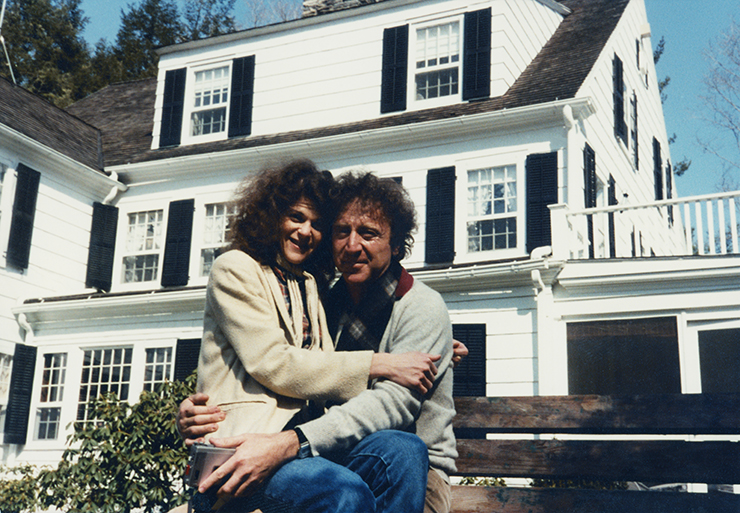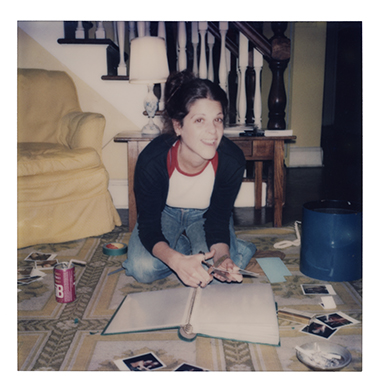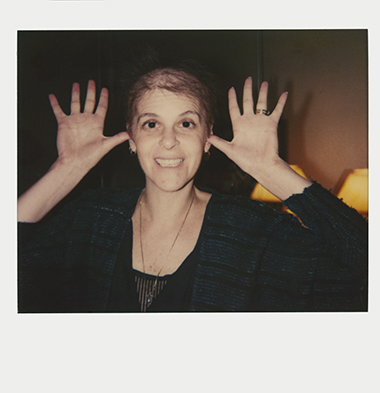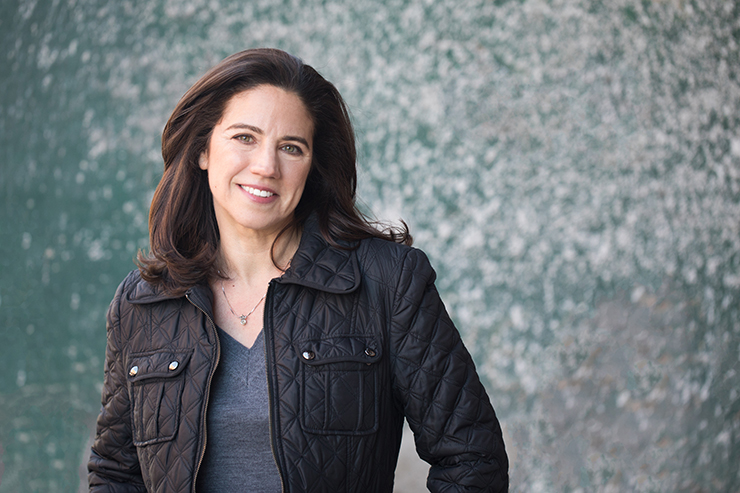
Gilda Radner and husband, Gene Wilder.
You know how there are people on television, and this was before social media, that just felt like they were part of your family? Comedienne Gilda Radner was one of them.
Apparently, I'm not the only person who feels that way.
I spoke with filmmaker Lisa D'Apolito, the creator of the documentary "Love, Gilda," which opens in Miami. Interestingly, she never credits herself as the writer of "Love, Gilda," and I wanted to know why. She's credited as director and producer, but never writer.

Gilda Radner.
"This is Gilda Radner telling her story," says D'Apolito. The filmmaker scoured friends and family to find videotapes, diaries and personal audio cassettes to document the life and career of the beloved "Saturday Night Live" star, who battled inner emotions while putting on a funny face to the rest of the world, and, who, at the end of her short life, bravely fought cancer. She was 42 when she died in 1989. That would make her 71 today. I can't believe it.
miamiartzine: So, the typical question. How did you decide to make a film about Gilda Radner? I'm surprised no one has before?
Lisa D'Apolito: The project started when I was doing a fundraising film for Gilda's Club in New York. Her presence is so present at Gilda's Club. I would go there and everyone would be happy to be there, but there was something more: they would so identify with Gilda and her journey and her story.
maz: I notice that you don't use in the credits "written by." It says you produced and directed, but no writing credits.
LDA: I always felt like the story was her story. And that was my main goal, for Gilda to tell her story. And it was her words, and the editors and I and producers went through the material, but this is really told in her words and her writing.

Gilda Radner during her fight with cancer.
maz: How were you able to make that happen? There's a lot of audio of her telling her story. I read in the production notes that Gilda's brother, Michael (who appears in the film), gave you access to her collection of boxes that were in storage since she passed away in 1989.
LDA: Yes, in the boxes were photos, journals and 32 hours of audio cassette tapes she recorded in order to write her book. It was wonderful listening to Gilda's voice. That was when I knew I had to tell the story from Gilda's point of view. The most important thing was to be honest with what Gilda was feeling. That was my No. 1 goal. I never wanted anyone else to narrate the story and there were times when people would say, "but we don't have the audio, the audio is too bad, we should get someone to read it. We can supplement with someone else reading some of the material. And I put my foot down and I would say, "no!" We'll go with as much as we can with Gilda, and other people can tell their stories about her, but no one was every going to be Gilda's voice.
maz: I know in the opening scene you show one of the cassette tapes.
LDA: Yes, some of them, unfortunately, were damaged beyond repair. We sent it literally to the best places throughout the world and the best people to salvage it, and they did. But some of what I really wanted, wonderful stories, we had to lose.
maz: Can you share one that didn't make it into the film because of that?

Filmmaker Lisa D'Apolito
LDA: Yes, there was one that I particularly fought for until the very end. Gilda tells a story about being in summer camp and she talks about when they would put on plays and the pretty girls would be princesses, and the controlling girls would stand next to them, and the fat girl, Gilda, would be a servant. And then she would go into her cabin and cry at night and eat Tootsie Rolls she had hidden away. And it is at that point she realizes that she's not pretty, even though I think she's beautiful, by the way, but she can be funny. She tells how things changed for her that summer because she began making friends by being funny. It was a wonderful story. I tried to keep it until the very end, but everyone told me it was just too distracting.
maz: How long from beginning to end did it take you to make the documentary?
LDA: About four and a half years. I was editing and raising money and getting more material, and that cycle continued: editing, raising money, and getting more material.
maz: The material. How did you get all that material?
LDA: I had some of the collection from Michael, but I wanted more. I was begging everyone. I'd call people I discovered that were Gilda's friends and I would say, "Do you have anything?" And they would say, yes, I think I remember we shot video when Gene (Wilder) and Gilda were at my house. I told them I'd help them go through their storage. It took a little convincing. Family members had letters. And I found articles from interviews Gilda did during her "Saturday Night Live" years, and we contacted some of the journalists who kept their recordings. It wasn't easy. Everyone told me at one point, or another, editors, producers, consultants, that we weren't going to be able to pull this off, and we did. I think we did.
A special screening of "Love, Gilda" was held at Miami Theater Center on Thursday, Sept. 20. It was the South Florida premiere hosted by the Miami Jewish Film Festival. The film opens in South Florida Friday, Sept. 21, at O Cinema, 500 71st St, Miami Beach. Call (786) 207-1919 for showtimes or https://www.o-cinema.org/venue/o-cinema-miami-beach/.




